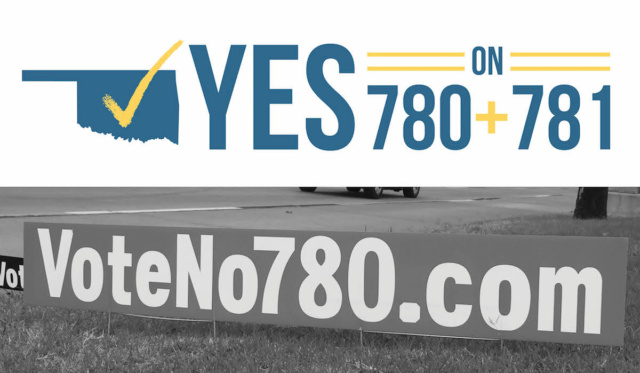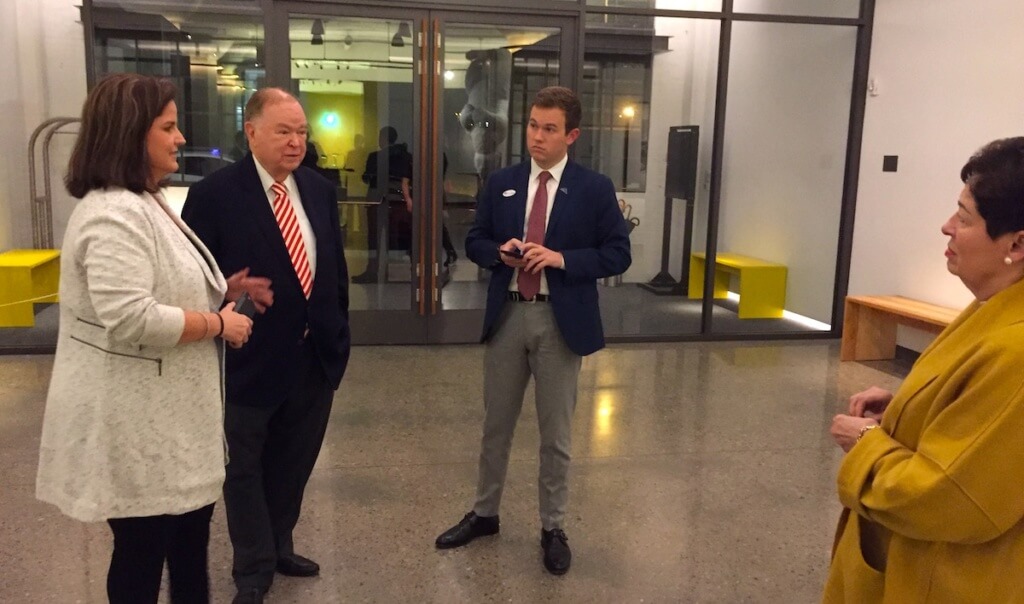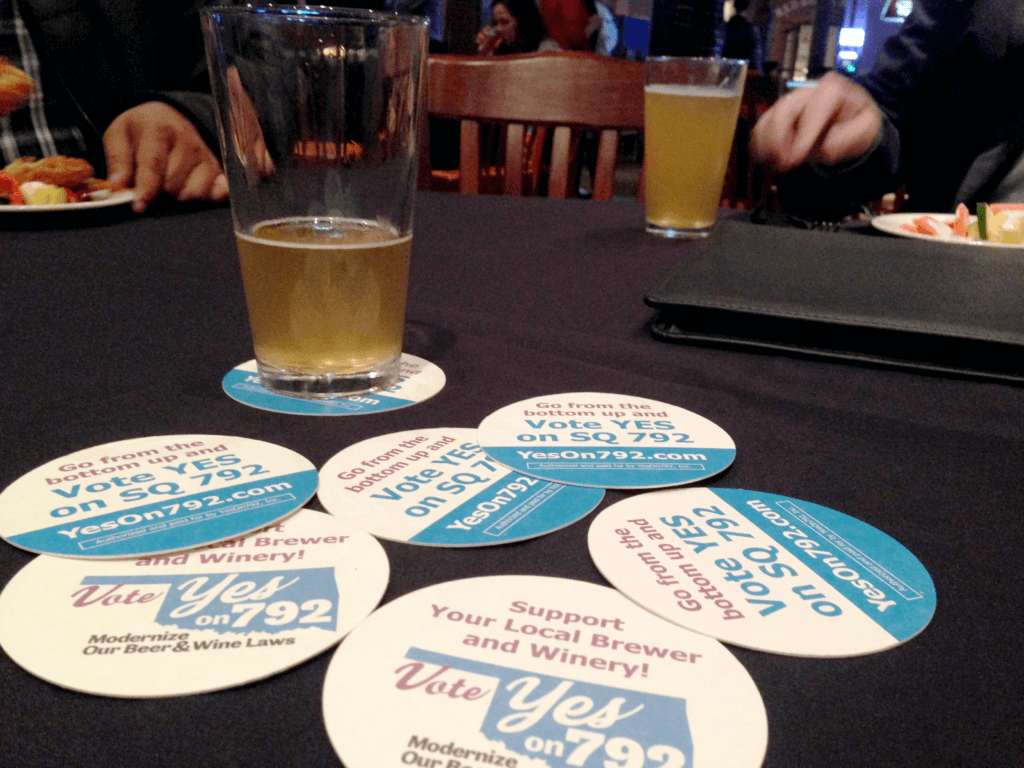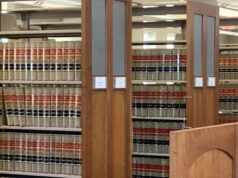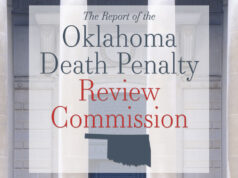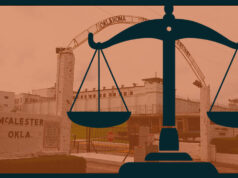
For as religious as Oklahomans may be in practice and in reputation to the rest of the nation, voters had few qualms about retaining the death penalty Tuesday night. At the same time, the electorate voted in favor of maintaining the separation between church and state as outlined in Oklahoma’s Constitution. They also passed two measures for criminal justice reform.
The following election results were drawn from unofficial results from the Oklahoma County Election Board’s website between 10:00 p.m. and 10:30 p.m. Tuesday night.
SQ 776: Death penalty
SQ 776 intended to put the death penalty into the State Constitution and codify it beyond the bounds of cruel and unusual punishment. Therefore, it would not violate the Eighth Amendment of the U.S. Constitution. The measure has passed with about a two-to-one margin, with more than 66 percent of the electorate in favor, thereby reinforcing Oklahoma’s reputation as a pro-death penalty state.
SQ 780/781: Criminal justice reform
For anti-death penalty advocates, the passage of SQ 780 with 58.0 percent of the vote may serve as some respite. Also known as the Oklahoma Smart Justice Reform Act, SQ 780 will reclassify certain low-level drug-possession and theft charges from felonies to misdemeanors. Meanwhile, SQ 781, which passed with 56.0 percent of the vote, will create a fund for rehabilitative programs as alternatives to prison.
SQ 790: Church and state
Basically proffered as a referendum of Oklahoma’s formal separation of church and state, SQ 790 asked voters to either repeal or uphold Article 2, Section 5 of the Oklahoma Constitution. That article expressly prohibits public money or property from being used for religious purposes. Oklahomans voted against repealing that article by a margin of about 14 points, with 57.1 percent of voters opposed.
Oklahoma City Public Schools sees bonds pass
All three of the school bonds for Oklahoma City Public
Schools were approved Tuesday night, opening the door for improvements to school building maintenance, technology and transportation.
The $180 million school bond proposals will help pay some previously-underfunded areas for the school district. The first proposition is for $106. 3 million for maintenance such as HVAC repairs and the replacement of antiquated plumbing.
The second proposition requests $54.5 million for updates to be made to the network infrastructure and to place thousands of new electronic devices into the schools. The third bond proposal is for $19.2 million to be used to purchase new buses and other transportation equipment.
The three propositions were each approved with at least 60 percent of the vote.
RELATED
Boren on SQ 779 failure: ‘We cannot secure our future by ignorance’ by William W. Savage III
RELATED
After alcohol modernization passes, ‘loose ends’ remain by Josh McBee & William W. Savage III









